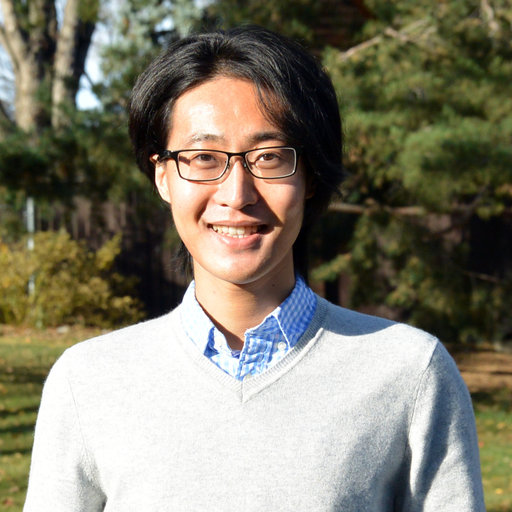Taking a closer look at research and experiences of SSHD members
~Researcher’s Window~
This month we are getting better acquainted with the research of Dr. Yao Zheng, Assistant Professor in the Department of Psychology at the University of Alberta.
1. What drew you to do work in human development?
I took a course on Lifespan Development by Dr. Yanjie Su (one of the few professors offering true lifespan perspective in China, as opposed to conventional Developmental Psychology that typically focuses on childhood and adolescence) in my sophomore year, and was mesmerized by the beauty of human development from womb to tomb. I am particularly fascinated by adolescent development. To me, adolescence (10–25 years) represents an exciting developmental period with unlimited opportunities for the life ahead of us. Studying adolescence is also one way to remind myself of feeling “young” or “youthful.” My international and interdisciplinary educational background largely shapes my perspectives towards my research program. Human development is such a complex process, and we ought to use different ways to understand it, especially in different ecological contexts.
2. Did you have any mentor or a researcher who had substantial influence in your path or work?
I have many mentors to thank for my career path thus far. I especially want to thank (in no particular order) Drs. Peter Molenaar, Robert Plomin, Bob McMahon, Mara Brendgen, Frank Vitaro, Nancy Galambos, and Yanjie Su. Besides their impressive research career that constantly inspires my own research, I have learned tremendously through their mentorship the importance of being a good researcher as well as a good mentor. They share several common mentoring styles that I greatly appreciate: 1) treat me more as a colleague than a trainee, 2) are very generous with their time and provide detailed, constructive, and timely feedback, 3) are always warm and supportive of my research and career, and will go out of their way when I need help.
3. You have a range of important work, select 1-2 findings that you feel are key contributions to human development and describe those in brief.
Zheng, Y., Rijsdijk, F., Pingault, J. B., McMahon, R. J., & Unger, J. B. (2016). Developmental changes in genetic and environmental influences on Chinese child and adolescent anxiety and depression. Psychological Medicine, 46(9), 1829–1838.
Opposite to the common findings using Western samples, genetic influences on anxiety and depressive symptoms decreased to negligible in middle adolescence in the Chinese sample, while shared environmental influences (i.e., shared family, community, and neighborhood environmental experiences that make family members similar to each other) increased, and explained the most of the continuity of anxiety and depressive symptoms over time. This study represents the first and thus far the only endeavor that systematically elucidates genetic and environmental contributions to the longitudinal development of depressive and anxiety symptoms in children and adolescents using a non-European or non-North American sample. The novel findings highlight the salient and pronounced role of shared environmental experiences during the transition period of adolescence in non-Western societies such as China.
Zheng, Y., & McMahon, R. J. (2019). Lability in parental warmth in childhood: Antecedents and early adolescent outcomes. Journal of Clinical Child & Adolescent Psychology, 1–13.
This study examined, for the first time, the role of long-term within-person fluctuations in parental warmth throughout early childhood and its links with psychopathology and social competence in early adolescence. Specifically, a unique feature of the changes in parenting that describes within-person fluctuations in parenting practices over time –lability–is linked with adolescent adjustment, above and beyond the general level and developmental trends (i.e., increase or decrease or stable) of parenting. The findings showed that greater lability in parental warmth from kindergarten to grade 5 was linked with more internalizing problems in grade 7 and lower social competence in grade 6. Moreover, lability partly explained the effects of SES on social competence in boys but not in girls, whereas the indirect effects of SES on internalizing problems through lability were significant in girls but not in boys.
- Your current project and/or key projects
I have three current and active research projects: 1) parenting behaviors and parent–adolescent relationships in daily life, which follows 100 parent–adolescent dyads daily consecutively over a month, both pre- and during the COVID pandemic. 2) transition to university, which follows approximately 300 university students daily consecutively over a month in the freshman year and again in the junior year to examine their socioemotional and behavioral adjustment during this transition period. 3) assessing impulsivity, sensation seeking, and emotion regulation among adolescents and young adults and their links to emotional and behavioral problems.
- Contributions of your projects/research to the study of human development.
All my three research projects focus on short-term within-person developmental dynamics in daily contexts, as well as their changes and links to long-term developmental outcomes at multiple timescales. Human development happens continuously in every second and minute. A growing body of research has shown that developmental dynamics on these micro timescales are not necessarily equivalent to long-term developmental processes on macro timescales (e.g., years). Disentangling relatively stable between-person differences from within-person fluctuations at multiple levels of analysis during childhood and adolescence represents a major thrust of my research program.
4. Your one wish for the study of human development
We need to promote a more diverse, inclusive, and global developmental science, especially research from the Majority World.
5. A mentoring statement or quote you find most meaningful or life-changing
“You can either travel or read, but either your body or soul must be on the way.” — Roman Holiday
About the researcher

Dr. Zheng is Assistant Professor in the Department of Psychology at the University of Alberta in the Developmental Science area. He was previously a Postdoctoral Fellow at Simon Fraser University and University of Quebec at Montreal. He received his Ph.D. and M.S. in Human Development and Family Studies, as well as a M.A.S. in Applied Statistics, from the Pennsylvania State University. He received his B.S. in Psychology from Yuan Pei Honors College, Peking University. During graduate school, he also visited the Department of Developmental Psychology at Friedrich-Schiller University Jena and the Social, Genetic, & Developmental Psychiatry Center at King’s College London as a visiting graduate student. His research focuses on the development and prevention of child and adolescent behavioral and emotional problems with the ultimate goal of informing intervention to promote physical and mental well-being. Specifically, he investigates the influences of family and peer processes that shape normal and atypical development at multiple levels of analysis and timescales in various ecological contexts.
Edited and launched by Deborah J. Johnson & Yoko Yamamoto
SSHD Publicity & Diversity Science Initiative Committee

